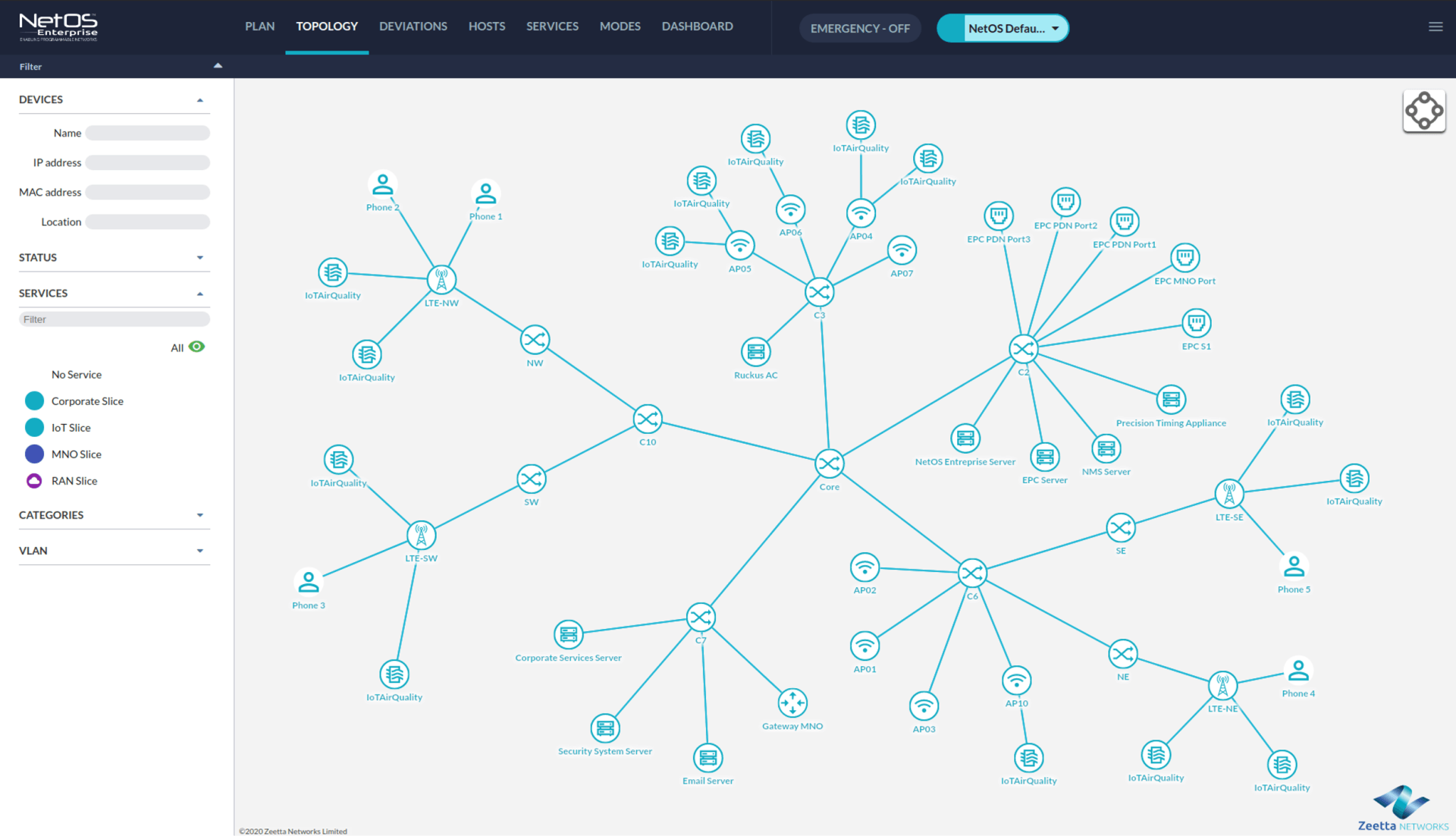
Blog Layout
UK government introduces £200m scheme to boost industrial and rural 5G
Jun 23, 2020
Scheme will help key areas seize the potential of modern technology, in particular 5G networks, and fulfil government’s commitment to ‘level-up’ infrastructure across the UK
The UK government has made its first move in its commitment to make “radical” improvements on 5G coverage in rural areas and help business to take advantage of the new infrastructure.
In October 2019, the government launched a £1.3bn scheme, dubbed the Shared Rural Network (SRN), which proposed to wipe “not-spots” from the map, providing what the government claims will be “high-quality” 4G coverage to 95% of the UK by 2025.
Now digital secretary Oliver Dowden has announced a £200m investment in testbeds and trials across the country to explore new ways that 5G can boost business growth and productivity, improve the lives of people in rural areas and maximise the productivity benefits of new technologies.
As part of an overall £65m package of government-funded trials to help rural areas seize the potential of modern technology and fulfil the government commitment to “level-up” infrastructure across the UK, nine projects across the country will receive a share of £35m from the government’s rural and industrial 5G competitions. In addition, the government has introduced a new £30m open competition – 5G Create – that will look at how 5G can create new opportunities in industries such as film, TV, video games, logistics and tourism.
The £30m Rural Connected Communities (RCC) competition will involve seven 5G research and development projects across the UK – five in England, one in Wales and one in Scotland, with plans to expand into Northern Ireland. Test sites will be set up in Yorkshire, Gwent, Monmouthshire, Orkney, Wiltshire, Nottinghamshire, Dorset, Shropshire and Worcestershire.
More than £5m of funding will be awarded to two industrial projects, led by Ford Motor Company and Zeetta Networks, to test the benefits of using 5G to boost productivity in the manufacturing sector.
UK tech company Zeetta will lead 5G-ENCODE, based at Bristol’s National Composites Centre, which will experiment with how 5G can improve the design and manufacture of composite materials, including through augmented reality and the remote monitoring of multiple factories at once. Meanwhile, Vodafone Business and Ford will lead a consortium trialling how 5G mobile private networks can improve the manufacture of electric vehicles at two sites in Essex and Cambridge.
“We are determined to make the UK a world leader in 5G and deliver on our promise to improve connections for people and businesses across the country,” said Dowden. “Today we are announcing new funding to seize the new opportunities this technology will offer us. This includes seeing how it could create new jobs in the countryside, make businesses more productive, and unleash even more ideas in our cutting-edge creative industries.”
Specific examples of where the funding will go include Sherwood Forest in Nottinghamshire, which will see the development of apps to transform the experience of visitors to the fabled location. Users will see Robin Hood telling the history of the medieval forest via virtual and augmented reality on 5G networks. New robotic environmental management will also be tested alongside live monitoring of the health of Sherwood Forest to preserve the site for future generations.
“There is no better opportunity to trial 5G in a forest setting anywhere else in the UK – not just for the area’s geography, but for its rich and fascinating history,” said Kay Cutts, leader of Nottinghamshire County Council. “I see this project as the start of a journey that will truly see Nottinghamshire on the regional, national and international tourism and environment management maps, as well as providing us with the opportunity to build the digital skills and opportunities of our residents and businesses.”
Funding will also go to 5G trials in air and sea search and rescue in Dorset to help save lives using terrestrial and satellite connectivity. This project will also trial 5G connectivity for remote farms to track crop growth, monitor livestock and reduce water pollution.
The trials will also support the government’s ambition to diversify the supply chain for digital infrastructure in the UK, namely excluding technology from companies such as Huawei from the core of 5G networks and restrict its use to radio access networks. The government stressed that none of the winning projects, or future projects from 5G Create, will use equipment from high-risk suppliers.

14 Dec, 2020
5G-ENCODE is a pioneering project looking to make the benefits of 5G technology a reality for UK manufacturers. The project is one of the UK government’s biggest investments in 5G for manufacturing to date and has been set up to establish clear business cases and value propositions for the application of 5G technology in manufacturing. Led by Zeetta Networks, activity started in early 2020 and will run until March 2022. The key objective is to design and deliver a private 5G network within the National Composites Centre. This will be used to explore new business models and 5G technologies, including network slicing and splicing, within an industrial environment. Specifically, activity will focus on three areas: AR/VR to support design, manufacturing and training Monitoring and tracking of time sensitive assets Wireless real-time in-process monitoring and analytics These use cases will be sector agnostic and will be deployed across a range of industries enabling new business models and opportunities, streamlining operations and creating additional revenue streams. This is especially important as the nation navigates economic turbulence brought about by the Covid-19 pandemic.

by websitebuilder-hub
•
23 Oct, 2020
5G-ENCODE switches on the first phase of its network at the National Composites Centre. This will test existing technologies and provide a baseline against which the 5G network capabilities will be compared. The project will establish and test 5G use cases to make the benefits of 5G a reality for UK manufacturers. London, 22nd October 2020: Today, 5G-ENCODE, a pioneering project that aims to make the benefits of 5G a reality for UK manufacturers, announces the switch on of its Phase One Industrial Private 4G Network at the world leading National Composites Centre (NCC), to establish a baseline for existing technology. This comes ahead of its Phase Two Industrial Private 5G Network, which will go live in 2021. The Phase One 4G network has been designed and developed by leading partners, Zeetta Networks and the University of Bristol’s Smart Internet Lab, and installed at the National Composites Centre. It will be used to establish a baseline for existing cellular technologies, against which results from the private 5G network, which will be installed in Phase Two of the project, can be benchmarked. The goal is to prove the value of 5G for use case performance and user experience and demonstrate the extent to which businesses will get a real return on investment from deploying private cellular networks within manufacturing. 5G-ENCODE is part of the Department for Digital, Culture, Media and Sport’s (DCMS) 5G Testbeds and Trials Programme and is one of the UK government’s biggest investments in 5G for manufacturing to date. New technologies, particularly 5G, hold the key to unlocking significant benefits for manufacturers, including streamlining operations and increasing productivity. The project has been set up to establish clear business cases and value propositions for the application of 5G technology in manufacturing. The cellular network will be used to explore new business models and 5G technologies, including network slicing and splicing, within an industrial environment. Specifically, activity will focus on three areas: Augmented Reality / Virtual Reality (AR/VR) to support design, manufacturing and training. Monitoring and tracking of time sensitive assets. Wireless real-time in-process monitoring and analytics. In the Phase One 4G Network, the focus will be on testing the asset tracking and AR / VR use cases. Each use case will be tested and data gathered on network performance, user experience and business benefit realisation. This process will be repeated for the Phase Two 5G Network and the data between 4G and 5G will be compared and analysed. Vassilis Seferidis, co-founder and CEO at Zeetta Networks says: “Zeetta Networks is proud to be the leading partner for the 5G-ENCODE project. The use cases being explored will be integral to accelerating Industry 4.0. Phase One is just the beginning, and we’re confident that this project will be key to revitalising the UK’s manufacturing industry and safeguarding it against the next global recession”. Marc Funnell, Head of Digital, and Director of DETI, National Composites Centre, says: “As a world-class research centre, the NCC is delighted to be the industrial test bed for the 5G-ENCODE consortium of leading industrial innovators. Today’s announcement marks the start of this project delivering real-life impact through the development of specific use cases for the 5G-ENCODE and Digital Engineering Technology & Innovation (DETI). We look forward to testing and sharing the results”. Xavier Priem, Senior Research Fellow at Smart Internet Lab says: “Smart Internet Lab is proud to support and provide expertise to the 5G-ENCODE consortium. We are delighted to be working alongside communities, telecom and Industry 4.0 experts in this project by providing knowledge on 4G & 5G technologies on the delivery of use cases. Our work will be fundamental in introducing new capabilities into Industry 4.0 processes and systems which will provide more flexibility.” --ENDS-- About 5G-ENCODE 5G-ENCODE is a £9 million collaborative project aiming to develop clear business cases and value propositions for 5G applications in manufacturing. The project is partially funded by the Department for Digital, Culture, Media and Sport of the UK Government as part of its 5G Testbeds and Trials Programme. It is run by a consortium of nine partners: Zeetta Networks, National Composites Centre, Mativision, Plataine, Solvay, Toshiba, Telefonica, Siemens and the University of Bristol’s Smart Internet Lab. https://www.5gencode.com Download



